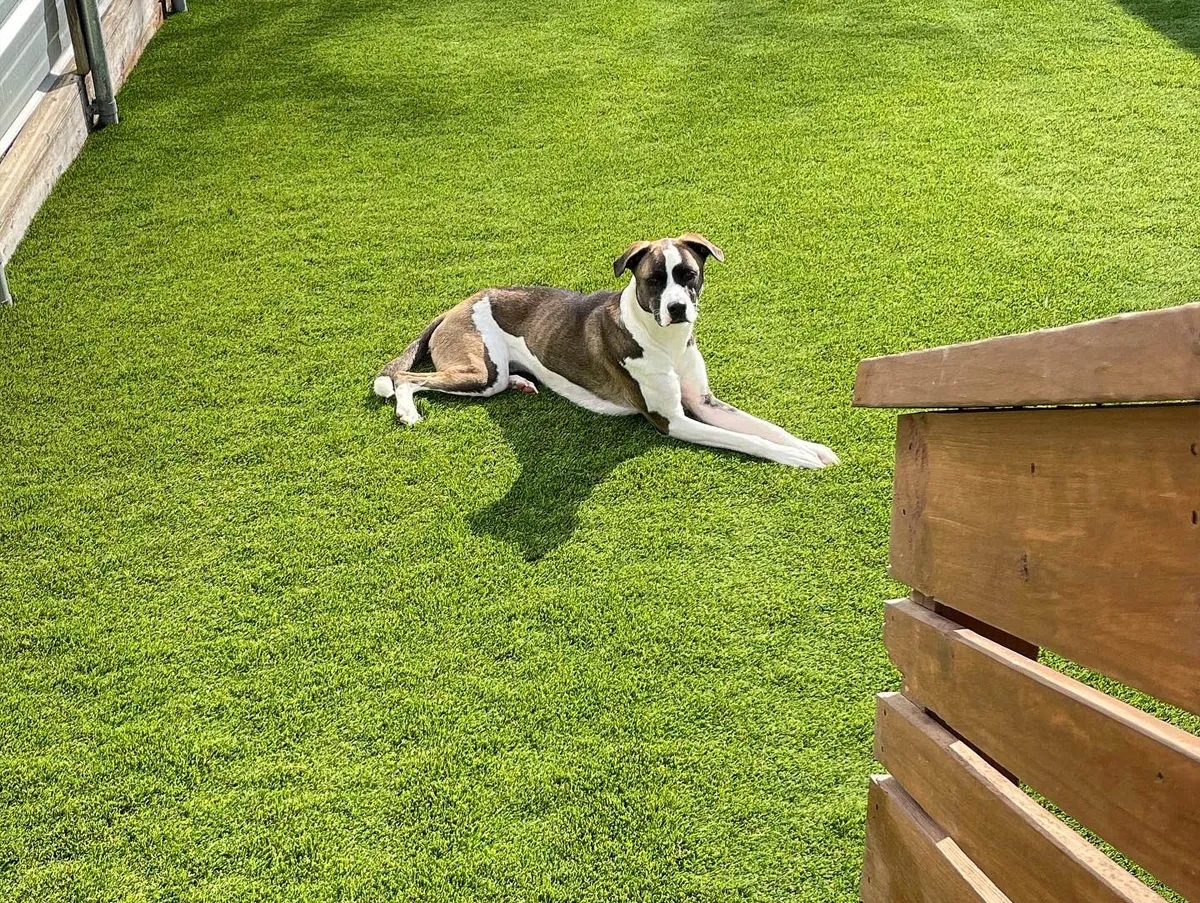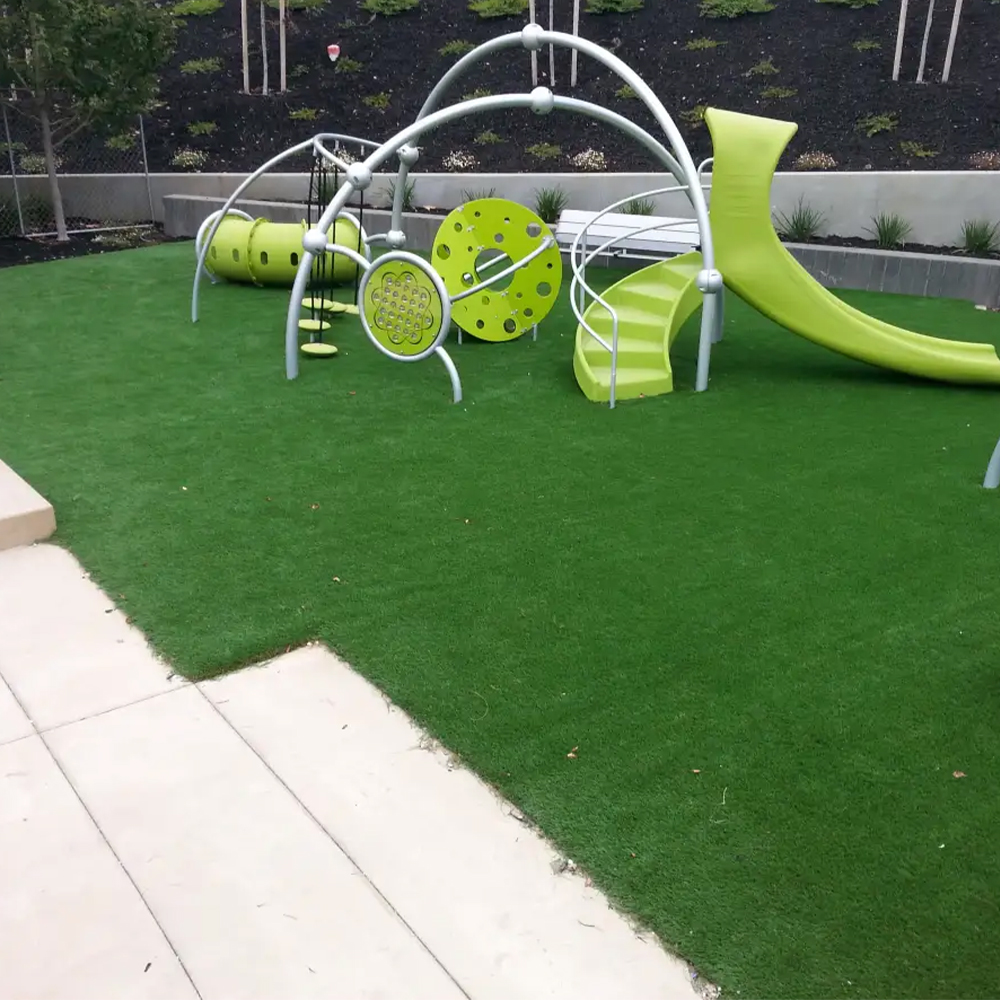Premium Arizona Turf Options for a Beautiful and Green Landscape
Premium Arizona Turf Options for a Beautiful and Green Landscape
Blog Article
Look Into the Environmental Advantages of Opting for Artificial Turf Solutions
The fostering of synthetic grass services presents an engaging chance to resolve pressing environmental obstacles. By dramatically reducing water use and reducing the application of dangerous chemicals, these alternatives not just advertise sustainable landscape design but also protect regional ecological communities. The lower carbon footprint associated with decreased maintenance activities adds to a more sustainable approach to land administration. Nevertheless, the effects of these benefits prolong past plain preservation efforts, elevating concerns about their lasting impact on habitat conservation and general environmental equilibrium. Discovering these dimensions reveals a complex interplay worth taking into consideration.
Water Conservation Perks
One of the most significant benefits of artificial turf is its ability to preserve water. In contrast, synthetic turf does not require watering, substantially lowering the total need for water sources.
By removing the demand for regular watering, synthetic grass adds to sustainable landscape methods and assists minimize the ecological impact of excessive water consumption. Additionally, the conservation of water extends to the reduction of drainage, which can lead to dirt erosion and waterway contamination.
In addition, the installation of synthetic grass allows towns and homeowners to allot water resources much more successfully, concentrating on necessary usages such as alcohol consumption water and agriculture. The change in the direction of man-made lawn not just advertises liable water usage however likewise lines up with wider ecological objectives intended at protecting natural deposits.
As neighborhoods increasingly prioritize sustainability, the water conservation advantages of synthetic grass offer an engaging instance for its adoption in domestic and business landscape design projects.
Reduced Chemical Usage
The change to synthetic lawn substantially reduces the dependence on chemical treatments frequently utilized in natural lawn maintenance. Conventional turf monitoring usually includes the application of pesticides, herbicides, and plant foods to promote development and control parasites. These chemicals can present dangers to human health, local wild animals, and the atmosphere, contributing to soil and water contamination.
In contrast, fabricated grass gets rid of the demand for these unsafe substances. By lessening the release of artificial compounds into the environment, man-made lawn promotes healthier soil and water systems.
In addition, the lack of chemical runoff connected with fabricated grass installations helps secure neighborhood rivers from pollution, supporting aquatic life and preserving biodiversity. Arizona artificial turf. As communities increasingly prioritize sustainable practices, choosing for synthetic lawn presents a sensible remedy that aligns with ecological preservation objectives. Via this change, homeowner can delight in lavish eco-friendly rooms without endangering ecological health, leading the way for an extra lasting future
Reduced Carbon Impact

Furthermore, the setup of fabricated grass can cause significant water conservation. Natural grass require substantial quantities of water for watering, which not just adds to the carbon footprint linked with water removal and therapy however additionally strains regional water resources. On the other hand, synthetic grass requires marginal upkeep, calling for no watering, thereby substantially lowering water usage and its associated energy expenses.
In addition, the longevity of synthetic turf contributes to its lower carbon impact. With a lifespan of approximately 15 years or even more, the requirement for frequent substitutes is decreased, leading to much less waste and reduced energy intake in manufacturing and taking care of traditional turf alternatives. On the whole, synthetic grass offers a lasting alternative for eco conscious landscaping.
Environment Conservation
Environment preservation is a vital consideration in the discussion over landscape design choices, specifically when comparing artificial turf to all-natural yard. All-natural yard lawns typically need substantial maintenance, including making use of pesticides, plant foods, and herbicides, which can negatively influence neighborhood ecological communities. These chemicals can leach right into the dirt and rivers, hurting native flora and animals find here and interfering with regional habitats.
In comparison, synthetic grass provides a possibility to minimize the ecological footprint of landscaping. By choosing artificial turf, homeowners can reduce the disruption of all-natural environments connected with standard grass treatment methods. Artificial turf eliminates the requirement for harmful chemicals, thereby protecting neighboring wild animals and keeping the integrity of bordering ecosystems. The installation of synthetic grass can lead to the conversion of previous lawn areas look here right into more biodiverse landscapes, such as pollinator gardens or indigenous plant locations, which can support neighborhood wild animals.
Ultimately, the change to synthetic lawn not only conserves water and reduces maintenance efforts yet additionally promotes a much more harmonious partnership between human tasks and the natural surroundings, advertising environment conservation in the process.
Long-Term Sustainability
Long-term sustainability is a crucial element in reviewing the benefits of synthetic grass over standard yard lawns. One of one of the most substantial advantages of man-made grass is its longevity; it can last approximately 15-20 years with marginal upkeep, whereas natural yard calls for constant reseeding and substitute. This longevity decreases the requirement for continuous resources, such as water, plant foods, and pesticides, which are important for keeping a healthy and balanced grass lawn.
Furthermore, fabricated lawn adds to a decrease in carbon discharges related to yard treatment devices. Standard lawns frequently require gas-powered lawn mowers, trimmers, and blowers, all of which add to air pollution. Arizona turf. In comparison, synthetic lawn removes the need for such devices, promoting a cleaner atmosphere
Additionally, the manufacturing of man-made lawn increasingly utilizes recycled materials, boosting its sustainability profile. As suppliers adopt eco-friendly techniques, the ecological impact of artificial turf proceeds to decrease.

Final Thought
The adoption of synthetic grass options presents considerable ecological benefits, including substantial water preservation, reduced dependence on harmful chemicals, and a lower carbon impact. Synthetic lawn help in maintaining all-natural habitats by reducing land disturbance and advertising lasting sustainability through the use of durable materials. Jointly, these variables emphasize the capacity of synthetic grass to add positively to environmental click to find out more health and offer a viable option to standard landscaping practices in an increasingly resource-conscious globe.
In comparison, fabricated grass does not require watering, considerably minimizing the general need for water sources. By decreasing the release of synthetic substances into the community, synthetic lawn advertises much healthier soil and water systems.
Moreover, the installation of man-made lawn can result in substantial water conservation. In comparison, synthetic turf needs very little maintenance, calling for no watering, consequently significantly decreasing water use and its linked energy prices.

Report this page